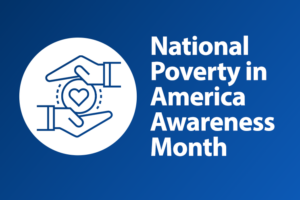Sarah Ford | October 27, 2014
Employee Engagement and Corporate Success Factors
Posted by Dana Yonchak
I’m always interested in learning different perspectives about skilled volunteering and the value that is defined and delivered by these programs.
For a view from the corporate executive perspective, I turned to Jacques Ouimet, VP of Global End Users Technology Services at Manulife Financial. Manulife operates as John Hancock in the U.S. (disclosure: Jacques is also a Common Impact board member.) We discussed how success is defined and what is needed to achieve strategic talent and employee engagement goals. Here are a few excerpts. Enjoy reading and please add your thoughts and comments!
DY: What key value is returned to a company, volunteer participant and a nonprofit in an employee engagement-skilled volunteering initiative?
JO:
- Value to the company: In my company, employee engagement is important and is measured on a frequent and consistent basis. We have seen employee engagement scores increase for those employees that are engaged in skilled volunteering projects. This commitment to skilled volunteering also distinguishes the company. Competition for talent is fierce; but when a company can show and prove its social commitment and achieve its objectives through the direct impact of employees, both company and employees become more deeply engaged.
- Value to the participant: Common Impact develops programs for employees to “learn by doing,” and provides opportunities to practice and expand skills in a nonprofit business setting. These active learning projects also broaden employees’ perspectives, and create opportunities to practice innovation. Ultimately, the opportunity to engage with colleagues from across the company, to learn in a dynamic setting, and to partner with a successful, growing nonprofit to directly impact its future are compelling motivators for participants.
- Value to the nonprofit: In these types of projects, nonprofits often achieve more than simply the delivery of “x” project. There is clear value in the project deliverable: be it a new website, integration of Salesforce, development of new tools, etc. But there is also a relationship that is formed between the nonprofit and volunteer team that often lasts long after the engagement is complete. Nonprofits can also glean practical skills and practices from a group of colleagues who use a consistent set of process and project management techniques.
DY: What 5 steps are needed for a company to succeed in creating an integrated, strategic employee engagement-volunteering initiative?

Get Resources and Insights Straight To Your Inbox
Explore More Articles
Open Position: Customer Service Coordinator (Remote-Part Time)
Position Title: Customer Service Coordinator (Remote – Part Time) Department: Charitable Funds Management Solutions We are a non-profit charitable organization looking for skilled individuals who…
Read ArticleGet Resources and Insights Straight To Your Inbox
Receive our monthly/bi-monthly newsletter filled with information about causes, nonprofit impact, and topics important for corporate social responsibility and employee engagement professionals, including disaster response, workplace giving, matching gifts, employee assistance funds, volunteering, scholarship award program management, grantmaking, and other philanthropic initiatives.




